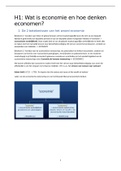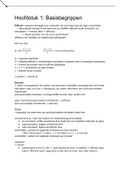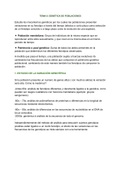Lecture 1. The interrelationship between the work of the Council of
Europe, the EU and the Hague Conference on Private International
Law and the relevance of private international law to family law in
practice
Questions
1) What is the function of:
I. Family law
“How far [family law] should try to serve the interests of the individuals involved and how far it
should serve the interests of the wider family group and of the community as a whole”. “Family
relationships are ever changing and family practices are changing, so it is neither possible nor
desirable to achieve or even to seek normative consistency in family law”.
Family law makes a statement about that balance of responsibility and therefore about the public
and private value of care, independence and dependence
“Responsibility for responsibility” (Diduck, 2011)
- Distribution of family wealth and financial responsibilities
- Care of dependants
Public enforcement of private responsibilities of individual family members (“social security system”)
II. Private international law
Every legal order in the world has his own rules on private law dealing with legal relationships
between private entities. Each different approach on national level. PIL; is the law that connects
international subject matters to a particular legal system in order to answer a particular dispute. Each
legal system had private international rules. Private international law is the law that comes into play
whenever a court is faced with a question that contains a foreign element or connection.
2) What is the role of the EU in the field of family law?
Diversity of family law systems in Europe
Impact of (i) the CJEU and (ii) EU PIL instruments on:
- Indirect: Substantive family law
o E.g. (same-sex) marriage, non-marital unions, divorce, parental responsibility
- Direct: national PIL
o EU conflict rules have priority even in cases with a third-country relationship
o Pressure to amend/update national conflict rules
EU family law resembles a “mosaic” (Scherpe, 2014), being composed of several individual,
fragmented, instruments covering discrete aspects of law
Difficulties associated with 'national‘ PIL systems
- Diversity of PIL → additional costs/efforts
- Result of application of national PIL may run contrary to regional/ international objectives
- Legal certainty
- Legitimate expectations of family members
- ‘Mutual recognition’ of family statuses
National efforts have not (and cannot) eliminate(d) all differences
Diversity of national private law therefore remains an obstacle to free movement and impacts on
human rights of, and protections for, family members
Also see art. 81 TFEU, 20 TEU and 216 TFEU.
,EU regulates eg social policy, free movement, EU citizenship, discrimination, fundamental rights – so
both public and private law. But in principle EU has no competence on family law. Important legal act
is the Brussels II Regulation and Brussels II bis Regulation and Rome III Regulation.
3) What is the Council of Europe and what is the relevance of its work in the field of family
law?
Council unique in the European context (i.e. as against the HCCH and EU) as its mandate to
harmonise domestic laws.
The Council of Europe (not be confused with the European Council, which is an organ of the
European Union) was founded in 1949 with the signing of the Treaty of London by the then ten
Contracting States.
The Council of Europe now has 47 Contracting States. Membership is open to any ‘European’
state. The territorial region of Europe is interpreted very broadly, including Turkey (considered one of
the founders of the organization), the whole of Russia, as well as Iceland and Greenland (the latter
being an autonomous part of Denmark). Every Contracting State (and only those: article 59) must
ratify the ECHR and the subsequently enacted Protocols.
The European Court of Human Rights (ECtHR) was set up in 1950 to monitor respect for the
human rights of everyone within the jurisdiction of the Council of Europe Contracting States. The
ECtHR sits in Strasbourg.
The Council of Europe protects and promotes the human rights of everyone, including children.
Based on the United Nations Convention on the Rights of the Child, the European Convention on
Human Rights and other legal standards, the Council of Europe promotes and protects the rights of
150 million children in Europe.
Council of Europe is an international organization bringing together all European states (besides
Belarus), but also the whole Russia, Turkey, Greenland and Iceland. Relevance of its work is very
substantial – the impact on family law in Europe is direct as states have to comply with the
judgments that are being given by ECHR – theoretically only the state that the judgment is addressed
to, but in practice all the member states comply with those judgments. ECHR sets minimal standard
for human rights, also in the field of family law.
4) What is the Hague Conference on Private international law and what is the relevance of its
work in the field of family law?
- An intergovernmental organisation; origin goes back to 1893; working toward “progressive
unification of the rules of private international law” (Art. 1 of the Statute)
- Has a legislative function without an adjudicative monitoring system (i.e. is not a court or
tribunal)
- Fulfils its mandate by developing and adopting Hague Conventions (as well as Protocols and
more recently also a first soft law instrument), which have been referred to as “World laws”
(Prof. Schermers, 1972)
- Does not, generally, purport to govern internal laws (but 1996 Hague Convention on the
Protection of Children does affect domestic rules on the allocation of parental responsibility)
It's an international organization that negotiates and makes the international agreements happen, so
its impact on the field of family law is indirect.
5) Is the EU a member of the Hague Conference on PIL? And, if so, what instruments is the EU
(and the Member states) bound by?
EU + HCCH: introduced uniform agreed PIL rules, in certain subject matters
- Conventions in the areas of international family law, international legal cooperation and
litigation, international commercial law. Not all states are bound by these PIL rules only those
contracting states to that specific treaty or the convention are bound by the uniform PIL
rules.
,
, Tutorial 1. Family law and the ECHR system of fundamental rights
protection
Questions
A. Basic questions
1) Is family law really law?
Yes, Civil code, rules regarded families and civil status. Aim: to protect individuals and
families. Legislator is the one who introduce the rules. Character is mandatory (dwingend
recht), in order to protect. Also thanks to many case law at European level. Less objective.
2) What and who is family law for (the normative aims)?
Protection of the weaker parties; children and sometimes women, vulnerable adults
(mentally ill, who are incapable to make decisions for themselves), elderly.
To identify someone (mother, father, child, minor)
Legal certainty. So parents know what to do when there is trouble. States need to know who
is married or not.
Cross border; why would EU take steps towards family law? EU is not really an actor.
Freedom of persons must be exercised without obstacles. So legal certainty that free
movement would not be undermined.
3) List the aims and objectives behind the European regulation of family law.
To make the free movement of persons possible. Which law is applicable private
international law. To ensure level playing field in order to create fairness, however it is not
always the case, it isn’t a aim.
ECHR: protection against interference from the state; access to justice
Promoting the exercise of rights, To prevent that someone goes forum shopping
4) What is the relationship between the Hague Conference, the EU and the Council of Europe
in the field of family law? Is the relationship overlapping, complementary or both?
How would you define the relationship between these organisations?
HCCH is international; which rules do we find here? Private international law
Council of Europe is European; minimum standards human rights and find substantive laws
European Union: character of these rules? Has no competence of substantive law, private
international law
May be some overlap between the HCCH and the EU: difference: HCCH is international and
the EU more on the European rules
Rules on all three institutions; co-ordination §
The relevance of the ECHR on family law in Europe
5) Do the judgments of the ECtHR have erga omnes effect?
Erga omnes: Judgements of the EU-court that are for all the contracted parties.
Judgements don’t have erga omnes, only effect on the parties who are involved, but may
have influence. By the judgment of the ECtHR minimal level will be set, states do adapt their
law.
6) What is meant by the ‘right to respect for private and family life’ (article 8)?
Who is meant by ‘everyone’; every person in a contracting state.
Positive and negative obligations
Negative: not to interfere, always or are there exceptions? Interference can be justified (lid
2). The court sometimes comes to the conclusion there has been an interference, and then
will be checked if this interference is justified.
Positive: involving from the state, to the protect the rights, interference has to be justified












